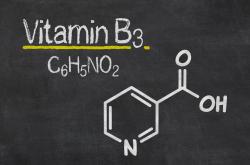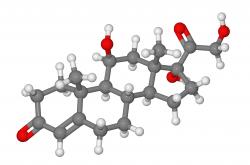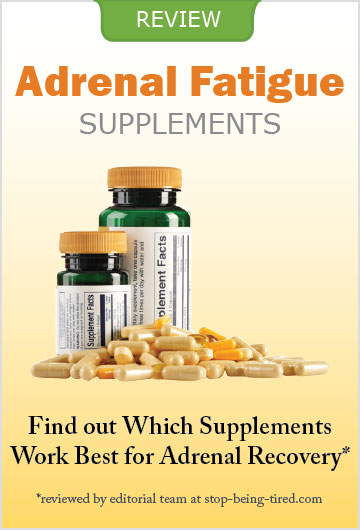Your Adrenals and the Important Role of Aldosterone
Hormone aldosterone is often severely decreased in adrenal fatigue patients. Learn to identify aldosterone imbalance and find out what you can do to correct it.
Most discussions of adrenal fatigue tend to revolve around the ways in which the adrenal glands can be weakened, and how those weakened adrenals can affect the body’s ability to meet its cortisol needs. Far less attention is given to how adrenal insufficiency can affect other critical hormones in the body. That is unfortunate, since those other hormones also have vital roles to play in human health. Take aldosterone, for example. While it is usually given far less attention than cortisol, this hormone has a tremendously important role in maintaining a healthy body.
What is Aldosterone
Aldosterone is a hormone that is produced in and secreted by the adrenal cortex – in the zona glomerulosa. It shares many characteristics with the hormone cortisol, such as its pattern of high and low levels throughout the day and the way in which it is triggered by messages from the pituitary. At the same time, the way it works within the body’s overall system for stress management is quite different. More important, its role in the body is far more specialized than the many tasks performed by cortisol.
Adrenal Fatigue and Aldosterone Production
Like cortisol, aldosterone production ramps up when the adrenal cortex receives ACTH – the hormone used by the pituitary to relay commands from the hypothalamus. When ACTH is sent out in response to stress, the adrenals respond by increasing the production of aldosterone to meet the body’s anticipated demand for additional hormones. This is similar to the way in which cortisol is called into action, but with one big difference: cortisol can exert some influence over ACTH, and thus help regulate its own levels in the body through a negative feedback loop. Aldosterone is not part of that loop, and is thus dependent upon cortisol’s control over how much ACTH is released.
The adrenal cells do have a system for stopping aldosterone production on their own, however. Typically, the cells responsible for that production can only remain in contact with the hormone ACTH for about twenty-four hours before they begin to develop a resistance to its effects. That resistance causes them to cease production, which then causes the level of aldosterone in the body to gradually decrease. Those levels remain low until the adrenal cells lose their resistance and once again become sensitive to the messages relayed by ACTH.
While that safety mechanism for preventing excessive amounts of aldosterone from flooding the body may sound like a positive thing, the reality is that it can lead to dangerously low levels of that critical hormone. That’s one of the great ironies of the adrenal system: many of the natural safeguards designed to prevent various hormones from running amok throughout the body actually work to increase adrenal fatigue when even one part of that system gets thrown out of balance. In this case, the lowered aldosterone levels only serve to increase the stress on the adrenals and further weaken the system. As a result, any severe decrease in the levels of this hormone can lead to many of the most common symptoms associated with adrenal fatigue.
The Role of Aldosterone in Your Body
Aldosterone may not receive the notice it should, but that in no way diminishes its importance within the human body. This hormone is responsible for maintaining the critical balance between the various minerals in our blood and cells, and is also vital for maintaining the proper fluid levels throughout the body. Aldosterone is but part of that equation, of course, but its role is essential for ensuring that every fluid in the body is kept at the appropriate level, and with the correct salt concentration. This is a complex job, as different fluids require different concentrations of these minerals. For instance, potassium is the dominant mineral within the various cells of the body, while sodium is found in higher concentrations in the area between the cells and in the bloodstream.
As aldosterone maintains the balance between the body’s sodium, magnesium, chloride, and potassium levels, it ensures that the body has the supply of those electrolytes it needs for proper function. Without these four minerals, the cells could not function as designed and the body’s fluid levels would fall out of balance. Even slight deviations from the proper state of equilibrium can result in dangerous biochemical reactions at the cellular level.
The Effects of Decreased Aldosterone
When aldosterone levels fall due to overstressed adrenals, the body’s ability to retain sodium at the proper level also decreases. That leads to less water being made available to critical areas of the body, since water transport is directly tied to sodium. The loss of water results in a decrease in blood volume, a rise in potassium levels, and even less sodium availability. What little water and sodium remains ends up being extracted from the cells and pulled into the fluid deposits between those cells. That leaves the cells in a dehydrated state, while creating the type of electrolyte imbalance that can be so threatening to good health.
The effects on the blood vessels can be dramatic, and represent some of the most obvious symptoms and signs of fatigue. Without normal sodium levels in the body, adrenal fatigue patients find themselves craving salty foods. The cellular dehydration leaves them unnaturally thirsty, and physically weak. The heart beat can become irregular as that muscle loses its contraction strength. Lightheadedness can accompany any attempt to stand up or move around. In short, complete exhaustion sets in as the body attempts to deal with this shock to its systems.
That dehydration is the direct result of the sodium being extracted from its natural place in the bloodstream and being drawn through the kidneys for release in the urine. Sodium has a strong relationship with water in the body, and that water follows it wherever it goes. As a result of that connection, any reduction of sodium in the system causes a corresponding reduction in the amount of water as well. While minor fluctuations in the sodium levels are generally harmless, the type of severe imbalances caused by the body’s reaction to continuing levels of high stress can be catastrophic.
Of course, when the sodium leaves the cells, some potassium is ejected as the cells attempt to maintain the correct balance of potassium, sodium, and water so that they can continue to function. That invariably results in a failure to maintain the required levels of each of those critical components, which causes the body to lose function at the cellular level.
That’s precisely why adrenal fatigue patients are advised to add salt to their diets. Without added salt, the depleted sodium levels in the blood stream force the body to draw salt and water from the area between the cells, which in turn drain those cells of salt and water in an attempt to keep pace. That inevitable dehydrating of the cells can only be countered by adding salt to the system while a recovery plan is enacted to heal the adrenals.
What To Do If You Suffer From Aldosterone Imbalance
One of the biggest problems facing most adrenal fatigue sufferers relates to dealing with the dehydration that can result from low levels of aldosterone. The natural inclination is to drink more water, but that can actually compound the issue in many cases. The mere introduction of additional water into an already unbalanced system will only end up causing an even greater dilution of the sodium that is already in the blood. To make matters even more complicated, the cells cannot even absorb water properly without the right amount of salt being present to assist in the process.
That’s why much of the advice about how to replenish lost electrolytes is so wrong – especially when fatigued individuals are directed toward sports drinks. Most sports drinks are extremely high in potassium, and are designed with little sodium – primarily as a result of the societal notion that sodium is somehow a great evil to be avoided at all costs. Even though a healthy person can get away with drinking high potassium energy drinks to replenish some of their lost electrolytes, that can be a critical error for anyone whose system is already out of balance due to fatigue.
Healthy people whose electrolytes are depleted after exercise are generally suffering the effects of increased cortisol. Sports drinks have the potassium needed to help counter those elevated levels. For fatigued individuals, however, added potassium only enhances the damage that is already being done by lower levels of both cortisol and aldosterone. Instead, these individuals need sodium to help bring their electrolytes back into balance.
This can be accomplished by adding a teaspoon of salt to a glass of water. Yes, you may feel as though you need potassium (many people suffering from fatigue find themselves craving bananas and other high-potassium foods) but you don’t actually want to consume potassium at that point unless you are also adding salt and water to your body. Otherwise, you can end up with an even greater imbalance between your sodium, potassium, and water levels. There are some simple options that can be used to replenish all three of these critical components when those cravings arrive.
- Try adding some kelp powder to your food, and drink water while you eat
- Have a banana, and a glass of water sprinkled with sea salt
- Add potassium with sweet potatoes, spinach, or kale, and drink that salted water
- If you can stomach milk, use it to replenish potassium while also getting some much-needed calcium, protein, and sodium
Remember, though, that those salt cravings are not just something to be satiated on a short term basis. When you are suffering from fatigue, it is important to continue to provide that supplementation for several days until you are certain that your dehydrated state has been corrected. Once that is accomplished, then you can rely on your adrenal recovery diet to help you maintain normal electrolyte balance.
To Your Health!
As you can see, the important role played by aldosterone cannot be overstated. To be sure, cortisol will probably continue to receive the lion’s share of attention whenever any conversation turns to the subject of adrenal fatigue. Still, by understanding the critical nature of aldosterone and how it impacts your health during times of fatigue, you can better recognize the signs of exhaustion and take proactive steps to help your adrenals deal with the dangerous effects of stress. And in the end, it is those steps that will aid you as you implement a recovery plan that can overcome your adrenal fatigue and restore you to full health.
You might also be interested in:
- Aldosterone in Blood. http://www.webmd.com/a-to-z-guides/aldosterone
- Eighteen Overlooked Symptoms of Adrenal Fatigue. http://www.naturalnews.com/024985_cortisol_blood_fatigue.html#
- Light on the Salt, Heavy on the Performance. http://www.drgangemi.com/articles/light_on_salt/
- 5 Foods That Help Replenish Electrolytes. http://www.fitbie.com/slideshow/5-foods-help-replenish-electrolytes
- Tired? Dizzy? Craving Salt? Could Be Low Aldosterone. http://bottomlinepersonal.com/tired-dizzy-craving-salt-could-be-low-aldosterone/














.jpg)




Leave a comment